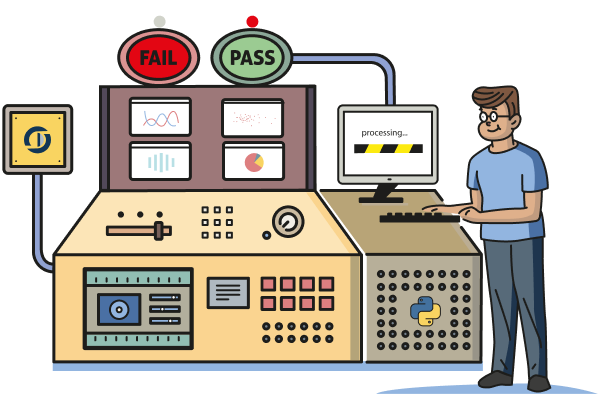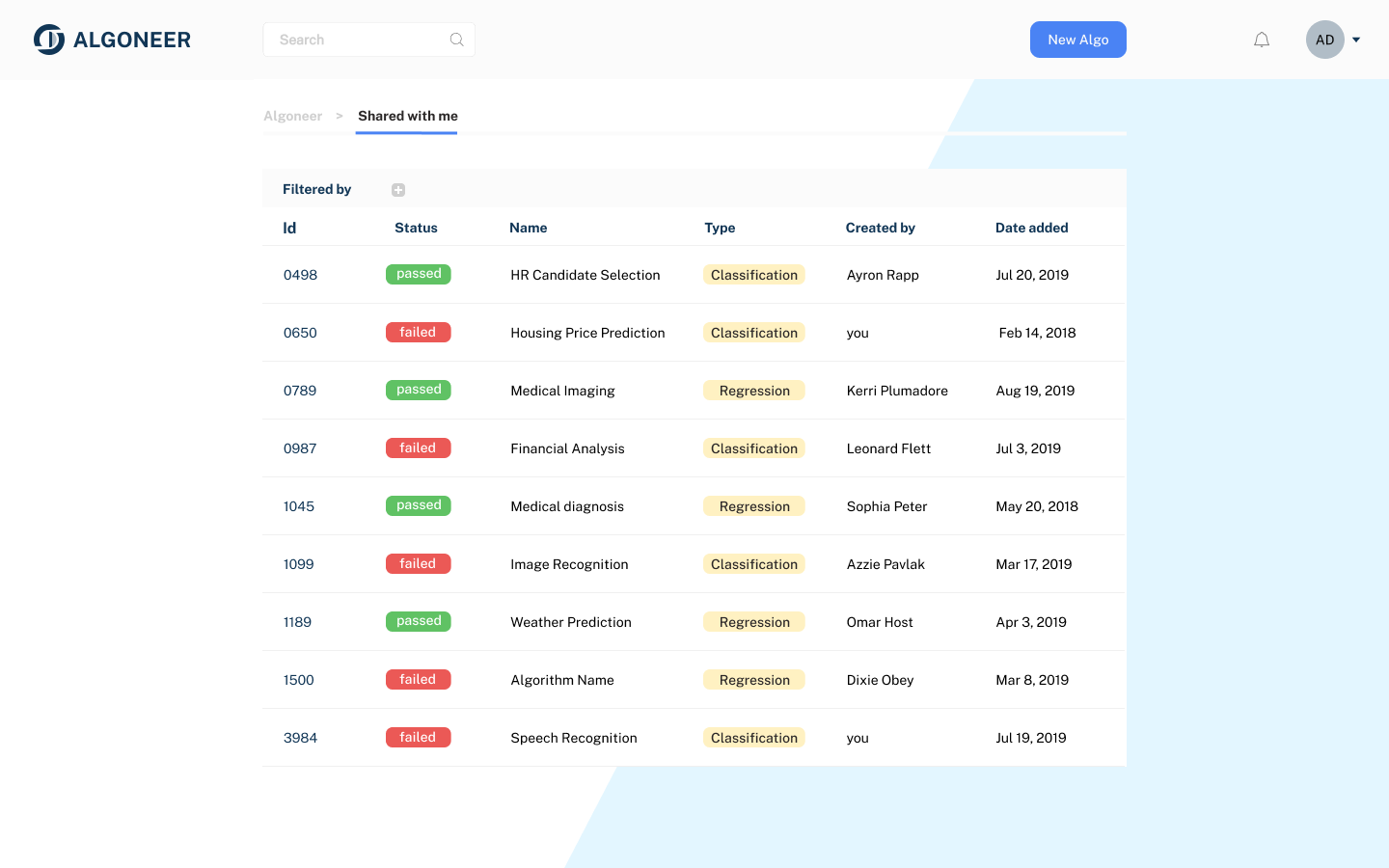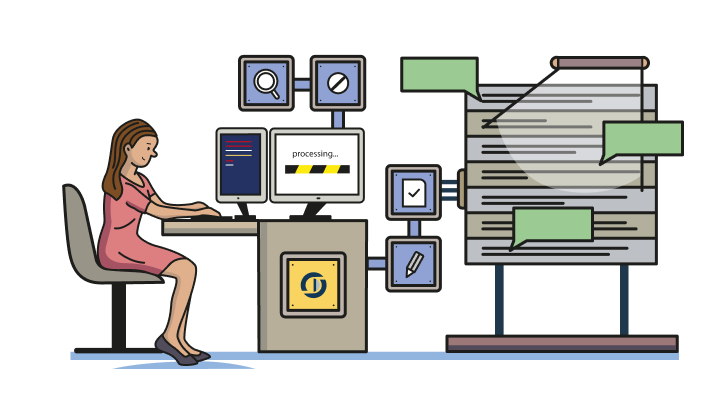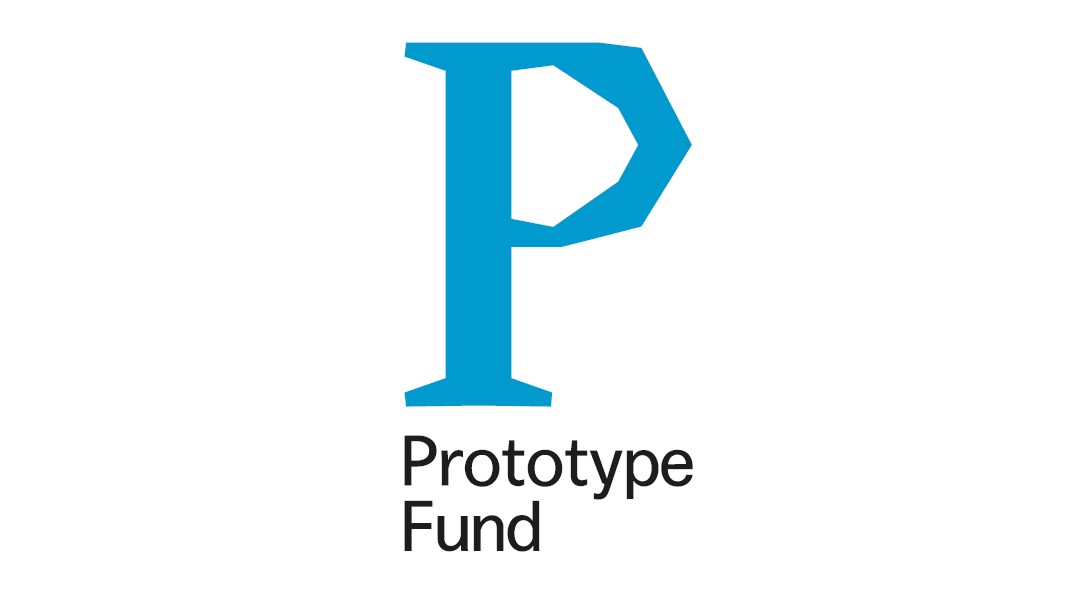Testing ML models has never been easier
-
 Run all common test methods with one command
Run all common test methods with one command
-
 Easily share the results with colleagues and stakeholders
Easily share the results with colleagues and stakeholders
-
 Compare the test results over time
Compare the test results over time

Learn More About Our Project And Team
Not testing and explaining machine learning models can lead to significant consequences and negative publicity.

“The algorithm repeatedly sent officers to neighborhoods with a high proportion of racial minotrities regardless of the true crime rate of the areas.”
2016


“The image recognition algorithms in Google Photos were classifying black people as gorillas.”
2017


“The algorithm reportedly downgraded resumes containing the words "women's" and filtered out candidates who had attended women-only colleges.”
2018

With Algoneer you can build systems that are robust, fair and understandable.

Automate testing of ML systems
Share and track your results
Run locally and in the cloud
Get reliable and actionable results
Open-Source
MIT license
Enterprise ready
Access control
Easily extensible
Plug & Play
Continous testing
coming soon
You can freely use Algoneer within your organization and inspect the entire codebase.
We keep adding and improving test methods and other modules of Algoneer, so your ML testing gets better and more insightful without any effort.
Workflow
1. Tell Algoneer about your data
First, use Algoneer's data schema description capabilities to annotate your data.
from algoneer import DataSchema, AttributeSchema as AS class MySchema(DataSchema): temperature = AS(type=AS.Numerical, roles=["x"]) humidity = AS(type=AS.Numerical, roles=["x"]) count = AS(type=AS.Numerical, roles=["y"])
2. Load your dataset
Next up you load your dataset. Algoneer supports pandas dataframes (more formats coming soon).
from algoneer.dataset.pandas import PandasDataset import pandas as pd #Import your dataset df = pd.read_csv("my-data.csv") dataset = PandasDataset(df)
3. Connect your ML models
To manage your ML models and algorithms with Algoneer. Currently, Algoneer supports sklearn algorithms, with more libraries (tensorflow, pytorch) coming soon.
from algoneer.algorithm.sklearn import SklearnAlgorithm from sklearn.ensemble import RandomForest algo = SklearnAlgorithm(RandomForest, n_estimators=100) model = algo.train(dataset)
4. Test your models & data
Using the data and algorithm schemas that you defined, Algoneer can automatically run tests on your models and datasets. Results can be viewed and analyzed offline or sent to the Algonaut API.
# Test machine learning models model_results = model.test() # Test datasets dataset_results = dataset.test() for name, result in model_results.items(): print(result.format('text'))
Technical Specs
Tests
Explainability: LIME, SHAP, PDP, ALE
Robustness, Bias, Security: coming soon
Data libraries

Supported libraries



Supported model types
Classification
Regression
Supported data types
Categorical
Numerical
Supported languages

License

 GitHub Repo
GitHub Repo


